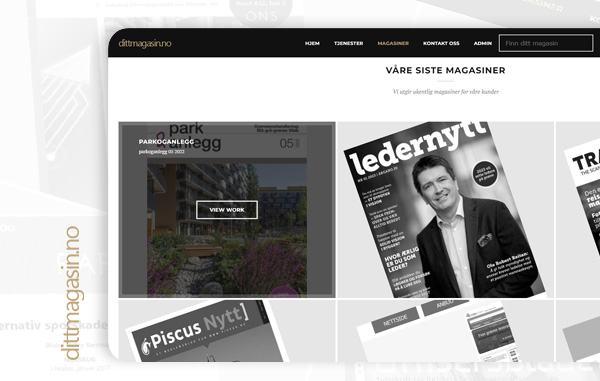Every Business Needs a Website. WHY?

In today's digital age, having a website is no longer just an option; it's a necessity for businesses of all sizes. A website serves as the virtual storefront for a company, offering numerous advantages and prerequisites that can significantly impact its success. In this article, we'll delve into why every business needs a website, exploring the benefits and the key elements required for a good, content-rich website.
Establishing Credibility and Trust
One of the primary reasons every business needs a website is to establish credibility and trust with potential customers. A professional-looking website conveys legitimacy and professionalism, giving customers confidence in the company's products or services. Providing accessible contact information, such as a phone number or email address, also contributes to building trust with customers.
24/7 Accessibility and Convenience
A website provides businesses with 24/7 accessibility to a global audience. Unlike a physical store, which has limited operating hours, a website allows customers to access information about the business and its offerings at any time, from anywhere. This level of convenience can greatly enhance the customer experience and drive sales.
Cost-Effective Marketing Tool
Compared to traditional advertising methods such as print ads or television commercials, a website is a cost-effective marketing tool with the potential for a much wider reach. Through search engine optimization (SEO) and online marketing strategies, businesses can attract a larger audience and generate leads at a lower cost.
Showcasing Products and Services
A website provides businesses with a platform to showcase their products and services in detail. Through compelling descriptions, high-quality images, and videos, businesses can effectively communicate the value of their offerings to potential customers. Additionally, websites allow for easy updates and additions to the product or service lineup, keeping content fresh and engaging.
Customer Engagement and Interaction
Websites facilitate customer engagement and interaction through various features such as feedback forms, surveys, and social media integration. Customers can provide valuable feedback, ask questions, and interact with the brand, fostering a sense of community and loyalty. Social media integration also enables customers to share their experiences with others, further expanding the brand's reach.
Building Brand Identity and Recognition
A website plays a crucial role in building brand identity and recognition. By incorporating consistent branding elements such as logos, colors, and messaging, businesses can create a cohesive brand image that resonates with their target audience. Highlighting unique selling propositions (USPs) on the website can also differentiate the brand from competitors and attract customers.
Enhancing Customer Service
Websites can enhance customer service by providing easily accessible FAQs, troubleshooting guides, and self-help resources. Additionally, features such as chatbots or contact forms allow customers to receive immediate responses to their inquiries, improving overall satisfaction and loyalty.
Analytics and Insights
One of the key advantages of having a website is the ability to track website traffic and user behavior. By utilizing analytics tools, businesses can gain valuable insights into how users interact with their website, which pages are most popular, and where improvements can be made. This data can inform strategic business decisions and help businesses optimize their website for better performance.
Mobile Responsiveness and SEO Optimization
In today's mobile-centric world, having a mobile-responsive website is essential. A mobile-friendly design ensures that the website displays correctly on smartphones and tablets, providing a seamless user experience across devices. Additionally, implementing SEO best practices can improve the website's visibility and ranking in search engine results, driving organic traffic and potential customers to the site.
In conclusion, a website is a fundamental tool for businesses looking to succeed in today's digital landscape. From establishing credibility and trust to enhancing customer service and engagement, the benefits of having a website are undeniable. By investing in a quality website that is content-rich and user-friendly, businesses can effectively reach their target audience, drive sales, and achieve long-term success.
How to Get the Most From Your Website
- Professional Design: Invest in a visually appealing and user-friendly design that reflects your brand identity. Ensure seamless navigation and responsive layout to accommodate various devices and screen sizes.
- Compelling Content: Content is king in the digital realm. Create engaging, informative, and relevant content that resonates with your target audience. Incorporate keywords strategically to enhance SEO and attract organic traffic.
- Optimized SEO: Enhance your website's visibility on search engines by implementing effective SEO strategies. Conduct keyword research, optimize meta tags and descriptions, and regularly update content to improve ranking and attract qualified leads.
- Clear Call-to-Action (CTA): Guide visitors towards desired actions such as making a purchase, subscribing to a newsletter, or contacting your business. Use compelling CTAs strategically placed throughout your website to streamline the user journey.
- Regular Updates and Maintenance: Keep your website fresh and relevant by regularly updating content, monitoring performance metrics, and addressing any technical issues promptly. Regular maintenance ensures optimal functionality and prevents potential downtime.









